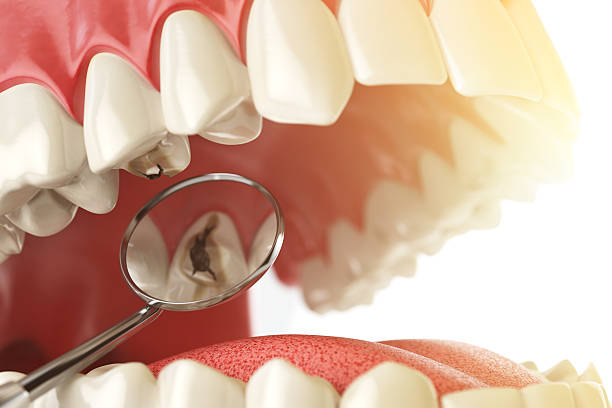What causes cavities?
Cavities are caused by the buildup of plaque, a film of bacteria, on teeth. When sugars in food and drinks are not properly cleaned off of teeth, the bacteria in plaque use them to produce acids that erode the enamel of teeth, causing cavities.
What are the symptoms of cavities?
The symptoms of cavities can include:
-Tooth pain or sensitivity to hot, cold, or sweet foods
-Visible holes or pits in the teeth
-Brown, black, or white staining on the surface of the teeth
-Pain when biting or chewing
-Toothaches
-In some cases, no symptoms may be present.
What are the treatments for cavities?
The treatment for cavities typically involves removing the decayed part of the tooth and replacing it with a filling. The filling material can be made from a variety of materials, such as composite resin, porcelain, gold, or silver amalgam.
In more advanced cases, a crown or a root canal treatment may be needed. Crowns are typically used when a lot of the tooth structure is missing, a filling is not enough to support the tooth and a root canal is needed when the decay has reached the pulp (the inside of the tooth which contains nerves and blood vessels) and an infection has developed.
It is also important to maintain good oral hygiene to prevent cavities from reoccurring. This includes brushing and flossing daily, and visiting the dentist regularly for cleanings and checkups.
What are the consequences of cavities?
If left untreated, cavities can lead to a variety of serious dental and overall health problems. Some of the potential consequences of cavities include:
-Tooth loss: as the decay progresses, it can destroy the tooth to the point that it can no longer be saved and must be extracted.
-Infection: if the decay reaches the pulp of the tooth, it can cause an infection in the tooth, which can spread to other parts of the body if not treated promptly.
-Pain and discomfort: cavities can cause toothaches, sensitivity, and pain when biting or chewing.
-Poor appearance: cavities can cause discoloration and visible holes in the teeth, which can affect a person's self-confidence and appearance.
-Complications during pregnancy: Some studies have shown that untreated cavities during pregnancy may lead to an increased risk of pre-term delivery or low birth weight babies.
-Difficulty eating: if a cavity causes a lot of pain or affects a back tooth, it can make it difficult to eat.
In addition, cavities are caused by a bacterial infection and it's a sign of poor oral hygiene, which can lead to other oral diseases such as gum disease.


Post a Comment